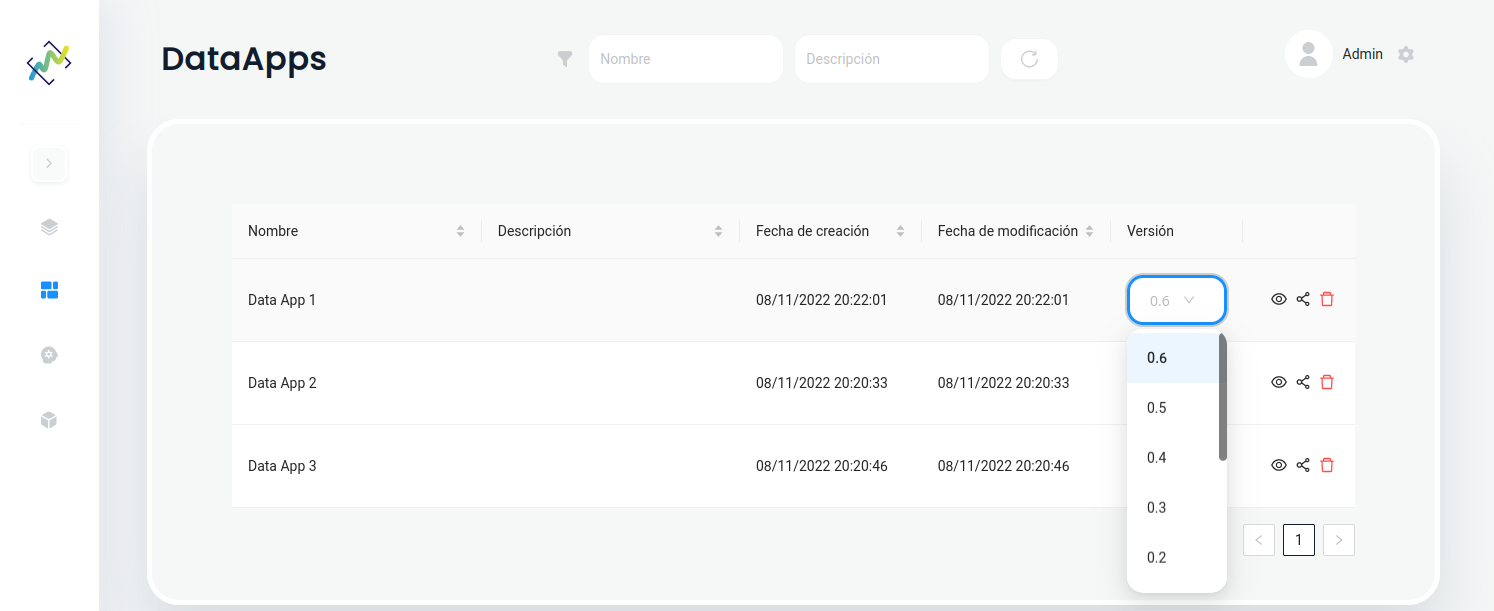Data Apps version control#
At Shapelets we care a lot about changes in production versions, that’s why Shapelets incorporates its own version manager within its system to be able to re-run a previous version of your Data App with a single click.

As you can see on the left hand side, there is a column called “Version” which has a drop-down menu. By default, Shapelets is set to start the latest version of your DataApp, but if you click on that menu you can select an older version and run it.

How it works#
To create a Data App, just import DataApp from the shapelets.app module and instatiate it.
>>> from shapelets.apps import DataApp
>>> app = DataApp(name="Data App Title")
If you run the Data App, by default, it will be created in its 0.1 version. If you later modify your dataapp and run it again, it will be updated to version 0.2, and so on.
Why is this the case? At Shapelets, we believe that the major versions of a Data App should be controlled by the developer, and we take care of the minor versions.
How can you specify a version? Specify it when you instantiate the DataApp object. You can use a python tuple or a python list
>>> from shapelets.apps import DataApp
>>> app = DataApp(name="Data App Title", version=(1,0))
Version control is designed so that the Data App developer only has to worry about the really important things.
What if I want to overwrite a version? If you have the version specified in the DataApp object, Shapelets will overwrite that version and changes to that version will be lost.
For example, if in your version 1.0 you have detected a bug or you want to make a major modification and you want the current version to be removed forever, simply specify version 1.0 in the DataApp object and version 1.0 will be overwritten.